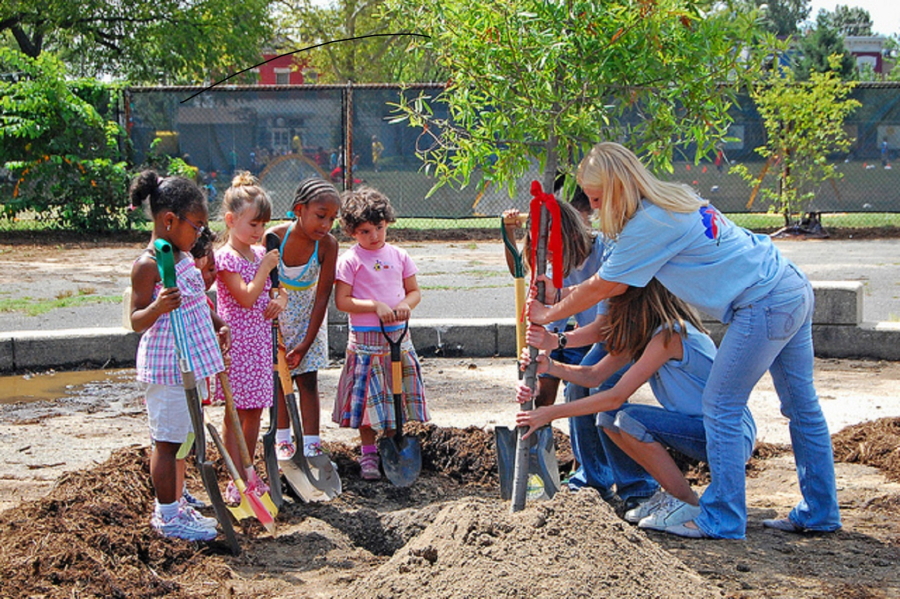Championing on-the-ground restoration work over the years
The National Fish and Wildlife Federation has partnered with the Bay Program for almost 20 years

For the past 35 years, the backbone of the Chesapeake Bay Program has been its partners. From the original signatories of the 1983 Chesapeake Bay Agreement—Maryland, Pennsylvania, Virginia, the District of Columbia, the Environmental Protection Agency and the Chesapeake Bay Commission—and the addition of the headwater states in 2014 (Delaware, New York and West Virginia), to the many non-governmental organizations and academic institutions, the Bay Program brings everyone to the table to address the restoration and protection of the Chesapeake Bay and its watershed.
Most people are unaware of one of the more unique functions of the Chesapeake Bay Program: that it provides funding for on-the-ground restoration work across the watershed through the Chesapeake Bay Stewardship Fund.
The Stewardship Fund is specifically dedicated to protecting the Bay through two grant programs.
- The Innovative Nutrient and Sediment Reduction Grant Program awards grants to support innovative, sustainable and cost-effective approaches that dramatically reduce nutrient and sediment pollution to the Chesapeake Bay and its local waterways.
- The Small Watershed Grants Program awards grants to organizations and local governments that work on community-based projects to improve the condition of their local watershed while building stewardship among residents.
Since 1999, this funding has been administrated by one of the Bay Program’s partners, the National Fish and Wildlife Foundation (NFWF). Created by Congress in 1984, NFWF is the United States’ largest, private conservation grant-maker, supporting protection and restoration efforts across the country.
Over the years, NFWF has awarded almost 1,100 grants totaling more than $150 million. These investments have leveraged more than $210 million in matching resources from local organizations to support conservation projects.

Comments
There are no comments.
Thank you!
Your comment has been received. Before it can be published, the comment will be reviewed by our team to ensure it adheres with our rules of engagement.
Back to recent stories